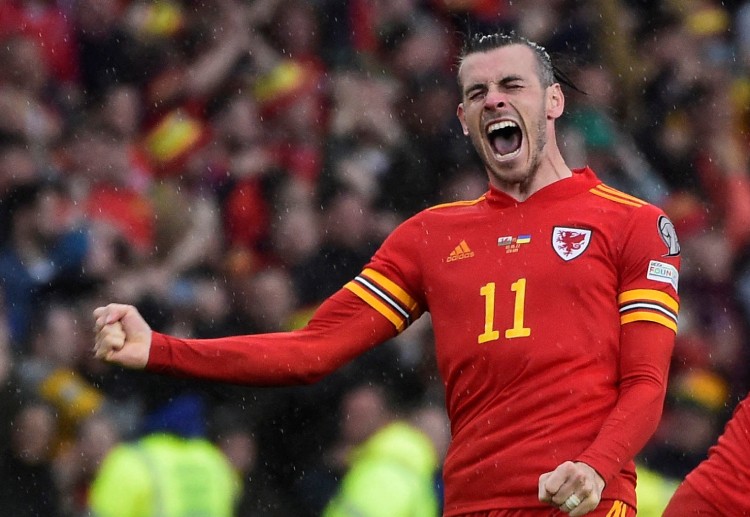Just when you are beginning to run out of superlatives for Gareth Bale, up he steps to deliver yet another one of those moments.
Sure, he may not dominate matches quite as he once did – hardly surprising given he is 32 years-old and had only played 22 minutes of football in the 10 weeks between Wales’ play-off semi-final win over Austria and their final success against Ukraine.
Sure, he may not have achieved as much in his career as Britain’s most decorated footballer of all-time Ryan Giggs, or even been adored as much as the late great John Charles. (although being part of a squad which has just clinched a fifth Champions League of his career is no mean feat)
Sure, it is somewhat inaccurate to describe Sunday’s success at a raucous Cardiff City Stadium as the ‘greatest result’ in Welsh football history given the Principality reached the quarter-finals of the 1958 World Cup and the semi-finals at Euro 2016.
But one thing that cannot be argued is that Bale is Welsh football’s favourite son for a generation and someone who has done more than any other player to lead his countrymen to new heights.
Heights which have seen Wales end their 64 year wait to reach a World Cup Finals.
It is not just that he inspired them to reach the semi-finals of the European Championship and to secure a first qualification for a World Cup in 64 years.




It is not just that he is a player who makes Wales more than just another mid‑ranking team.
It is because he has an unbreakable bond with his country – with men, women and children of all ages.
Remember, this is a nation which has been littered with tales of near misses. From Scotland in 1977 and 1985 to Romania in 1993 – a match engrained on many a Welsh fan growing up – Wales have stood on the brink of history only to stumble at the final hurdle.
They had seen teams with greats, the likes of Giggs, Ian Rush, Mark Hughes, Neville Southall, Kevin Ratcliffe et al; with far more individual talent than the class of 2022, agonisingly miss out.
This time, though, was different for Bale saw them through.
Of course, with more nations now able to qualify for the major international tournaments, the path can be a lot more straightforward than faced by his predecessors.
With Bale, though, there is also a bond between him and the Welsh public that few, if any, others have been able to match.
That was evident by the sight of him leading the singing of ‘Yma o Hyd’, an iconic protest song about Welsh independence which has been adopted as a team anthem.

There was Bale, one of the majority who do not speak Welsh, swaying from side to side with his arms around his team-mates’ shoulders as he belted out the words as if they belonged to the national anthem.
And so attention turns to Qatar in November and, hopefully as far as Wales are concerned, into December.
Now that they’re in, the Welsh have a great opportunity to make it to the World Cup knockout stages. They’ve been drawn in Group B along with England, Iran and the USA. While the US are likely to offer some stiff competition, Wales are arguably the better team and should fancy their chances of making it through as group runners-up.
But let’s reflect on yesterday’s events once more.
The occasion when Cardiff City Stadium became engulfed in red smoke that pours from the pyrotechnics smuggled in by some members of the Red Wall. Amid the pandemonium of it all, respect shines through. Emphatically so.
For he is one of them, the protagonist of Wales’ golden days – and these are the days Bale and his team-mates can say with certainty and pride as they head to Qatar: “Ry’n ni yma o hyd. We are still here.”
●●●
CHECK OUT OUR BLOG FOR MORE FOOTBALL STORIES & ODDS
Stay updated with everything sports and betting.












